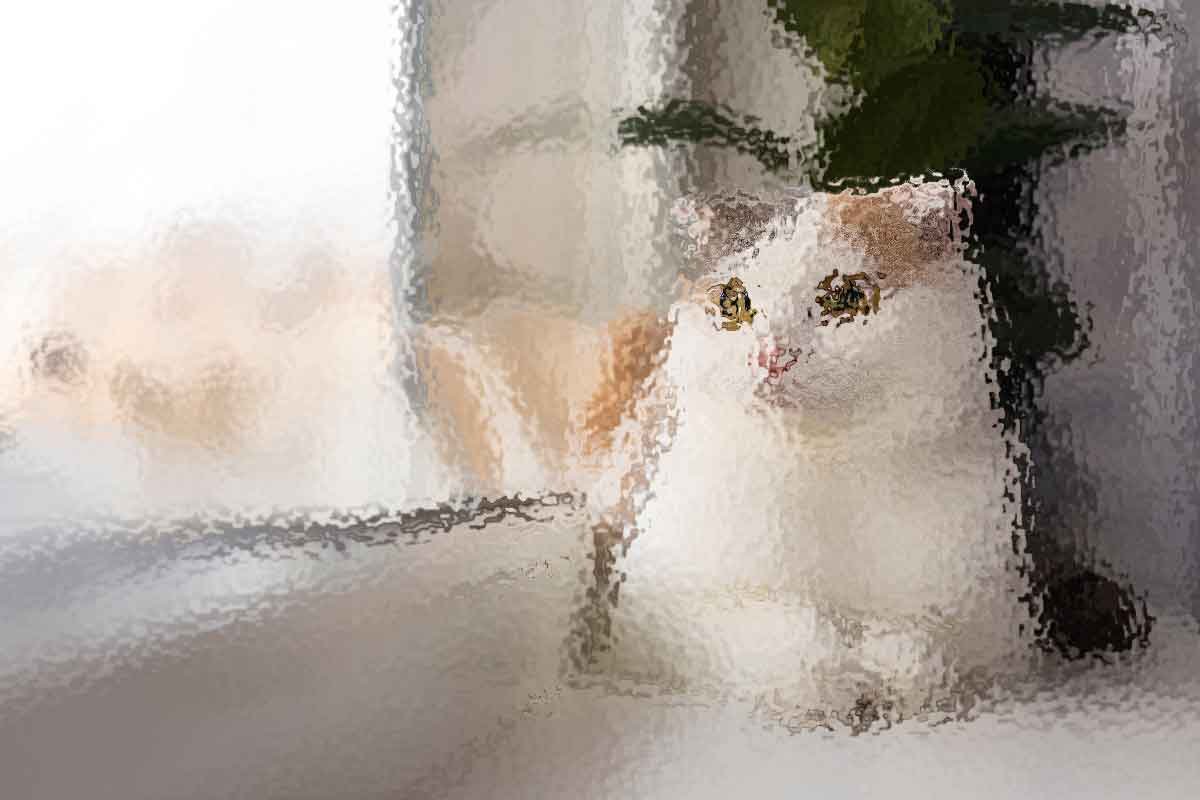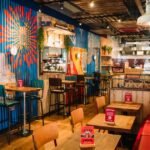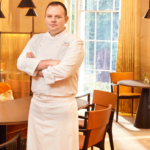By Denis Sheehan FIH: Insights for hospitality employers about the importance of accessibility from Calum Milne.
I recently had the opportunity to interview Calum Milne, director of Pale Hall at Llandderfel, near Bala in Wales. I first met him years ago when he was the director of Llangoed Hall. During this interview, I learned about Calum’s latest role and the unfortunate fact that he became completely deaf after contracting Covid. I hope this conversation captures part of his journey and highlights the benefits of being more accessible employers in our industry. Most of the words in this piece are Calum’s. Thank you, Calum.
Calum Milne is the director of Pale Hall at Llandderfel, near Bala in Wales. He previously led Llangoed Hall and has managed leading hotels in Scotland and England, earning national hospitality industry awards.
With 35 years in the hospitality industry, Calum has faced significant personal challenges following his deafness due to Covid in 2020, but he has persevered to return to a profession he loves.
Calum shares his story:
“In early 2020, I was hospitalized in Scotland with Covid. I don’t recall much from that time as if it has been erased from memory. Initially, I retained some hearing in one ear, but soon after, I became entirely deaf.
After being discharged, I stayed with my brother Kenny for a week but was eager to return home for my dog.
I was connected with the Cochlea Implant Centre in Kilmarnock by my audiologist and consultant, but I hesitated to volunteer for the surgery due to concerns about potential damage.
Experience with my hearing loss has heightened my awareness of others with disabilities. While I recognize that some individuals may not disclose their disabilities out of pride, it will never deter me from hiring them. Everyone has a role to play in society.
Returning to work involved a long and arduous journey. Thanks to my parents’ dedication, and with the help of a private tutor, I learned to lip-read over three and a half years. My father would read from newspapers, and I had to lip-read and repeat the passages.
I must express my gratitude to my brother, sister-in-law, and nephews for their patience during my moments of frustration due to my communication challenges. I now prefer round tables to square ones for easier visibility when others are speaking.
After mastering lip-reading, I put myself back into the workforce by taking a part-time role as a breakfast supervisor at Crieff Hydro, working four mornings a week, which helped rebuild my confidence. Initially, I feared that I might never return to the hospitality industry.
Determined to reclaim my career, I accepted that my world may be altered, yet I am still here, aiming to prove a point. I realize that others face far more difficult circumstances than I do.
Several deaf individuals reached out to me on LinkedIn offering their support, but I found that they often needed more assistance from me. Many just require a little guidance.
Unfortunately, many prospective employers have not been supportive. My experience in an industry that prides itself on inclusivity revealed a tendency to exclude individuals with disabilities. Upon disclosing my deafness, I could see immediate changes in employers’ expressions, leading to a lack of follow-up. It was disheartening.
I applied for numerous positions in the industry but received little response; from around 40 to 50 applications, I managed only four interviews.
In contrast, my current employer has been supportive. When I secured my position as director of Palé Hall and Estate, I had a Zoom call facilitated by an app that worked remarkably well for me. I feel fortunate to have access to technology that many deaf individuals in other parts of the world do not.
Tony Cooper-Barney, my employer, invited me to visit Palé Hall. I was able to interview with him and his wife Donna, and they successfully offered me the job shortly thereafter.
It was a twist of fate, as I almost purchased Palé Hall for my previous employer during my directorship at Llangoed Hall. It felt like an alignment of stars, especially considering the hall was built by a fellow Scotsman, Henry Robertson, in the 19th century.
I was thrilled to reintegrate into a career I have pursued for 35 years, with 15 of those spent in Wales. Tony and Donna have expressed their willingness to support me, though I strive for independence and do not wish my disability to define me. They are genuinely nice and fair employers, which is all one can hope for.
Tony and Donna acquired Palé Hall only a few months ago, which has made it a learning curve for us all. I aim to facilitate an easy experience for everyone.
Through this interview, I hope to inspire others with disabilities to pursue a standard career.
One of my biggest challenges has been understanding the predominantly Welsh-speaking staff and guests. As I am unable to lip-read Welsh, this adds another layer to my role. My tutor always emphasized that grasping individuals’ private conversations is crucial in our industry.
I acknowledge my disability and sometimes take an afternoon siesta to recharge, as lip-reading is mentally taxing. Tinnitus can be overwhelming at times, but it tends to ease bit during work as I focus on other tasks.
My experiences have reshaped my perception of the hospitality industry’s accessibility. We can do so much more for individuals with disabilities—whether they’re deaf, blind, or in wheelchairs—who can contribute meaningfully.
Disability can often be unseen. Are we truly going to exclude everyone just because we perceive a disability? The hospitality workforce is facing shortages. Of the 1.6 million deaf individuals in the UK, 40% are of working age. Why not employ them? We must make adjustments and ensure no one is excluded.
At Palé Hall, we welcome guests and staff with visible and invisible disabilities. There’s a role for everyone; it’s about recognizing their abilities rather than limitations. Greater understanding is certainly needed.
With experience, I’ve come to appreciate the importance of fairness and tolerance towards others. I am now more compassionate and fair-minded. It’s important to act justly for others, regardless of disabilities.
The lack of understanding in the hospitality sector is quite disappointing and has been enlightening for me. My former employer, Sir Bernard Ashley at Llangoed Hall, was known for his forgiveness. We employed ex-convicts to reintegrate them into society—doing the right thing is essential in everything we do; it reflects our core values.
Had I not received this opportunity at Palé Hall, I’d likely be back in Scotland living with my mother, not fully embracing life. I hope to demonstrate that anyone can achieve what I have when provided with the right opportunities and the determination to succeed.
Thank you, Calum.
Denis Sheehan FIH, Publisher H&C News





